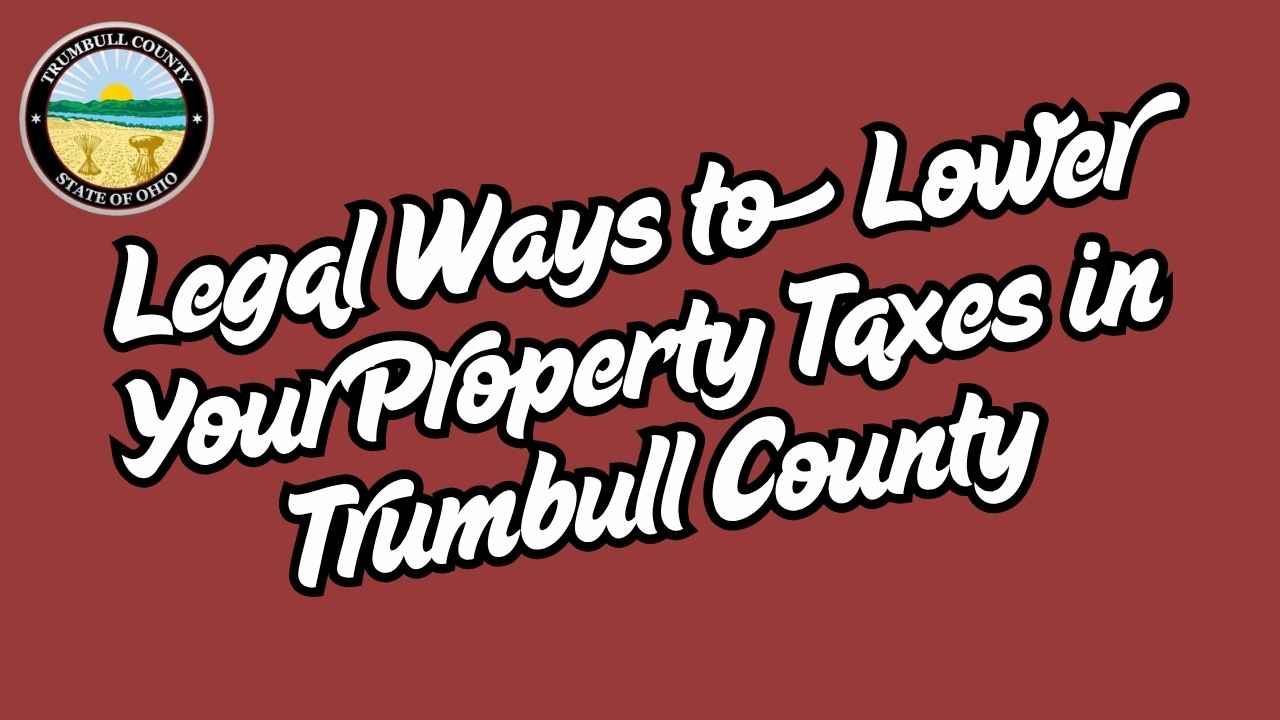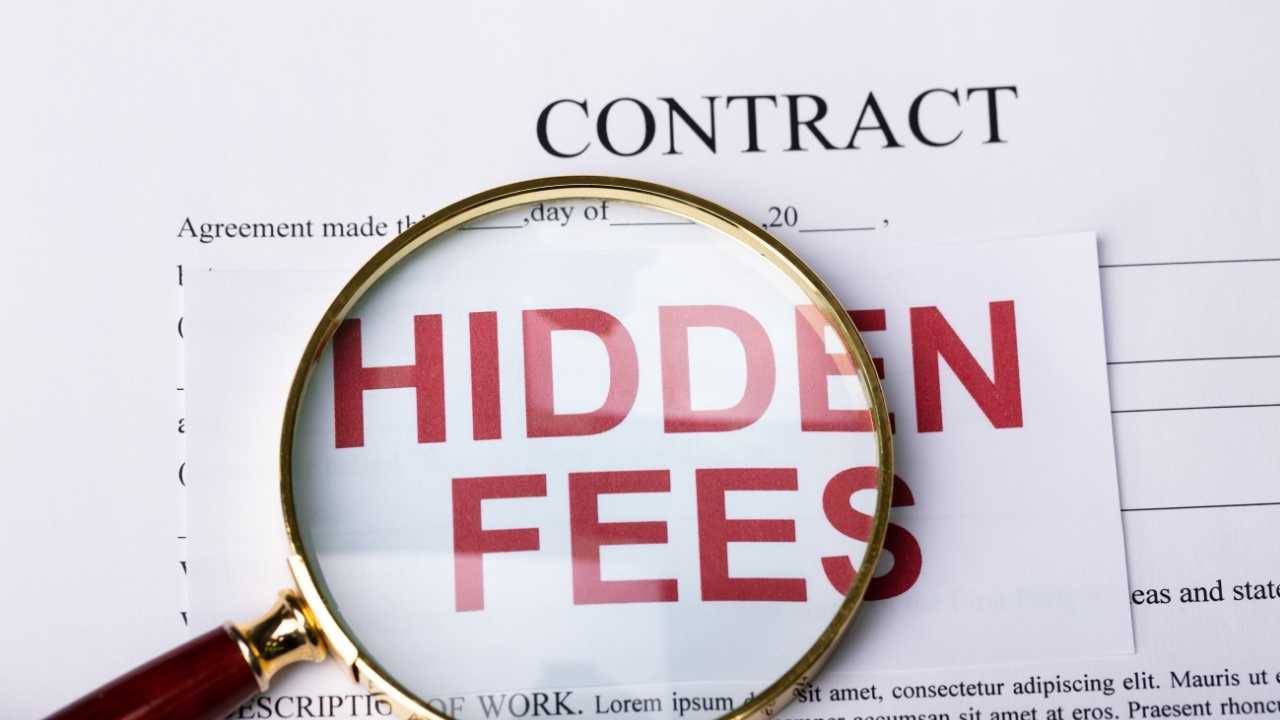Property taxes in Trumbull County can be lowered legally. You can appeal your property assessment, apply for exemptions, or use tax relief programs. This article will guide you on how to save money while following Ohio laws. Let’s explore ways to reduce your property tax bill in 2025.
Property Taxes in Trumbull County
Property taxes fund local services like schools, roads, and public safety in Trumbull County. The Trumbull County Auditor assesses property values, which affect your tax bill. Knowing how these taxes work is the first step to finding savings.
How Property Taxes Are Calculated
The county auditor determines your property’s assessed value, usually 35% of its market value in Ohio. This value is then multiplied by the local tax rate to find your annual tax. Improvements or market changes can increase your bill.
Why Property Taxes Vary
Tax rates vary across Trumbull County’s cities, like Warren, Niles, or Girard, due to local levies. School district funding often drives higher rates in certain areas. Understanding your area’s tax structure helps identify reduction opportunities.
Step 1: Review Your Property Assessment
Your property’s assessed value is the basis of your tax bill. If it’s too high, you’re overpaying. Reviewing and appealing your assessment is a powerful way to lower taxes.
How to Check Your Property’s Assessed Value
Visit the Trumbull County Auditor’s website (trumbullcountyauditor.gov) to view your property’s valuation. Look for errors in square footage, lot size, or property features. Incorrect data could inflate your assessment.
Filing a Property Tax Appeal
If your assessment seems too high, file a complaint with the Trumbull County Board of Revision. Appeals must be submitted by March 31 each year for the prior tax year. Provide evidence like recent sales of similar properties or an independent appraisal.
Tips for a Successful Appeal
- Gather comparable property sales from your neighborhood.
- Document property issues like structural damage or outdated features.
- Be polite and professional when presenting your case.
Step 2: Explore Property Tax Exemptions
Trumbull County offers exemptions that can significantly reduce your tax bill. These are legal, state-approved programs for specific groups. Check if you qualify for any of these.
Homestead Exemption for Seniors and Disabled Homeowners
Ohio’s Homestead Exemption lowers taxes for homeowners aged 65 or older, permanently disabled, or surviving spouses. In 2025, eligible residents can reduce their property’s assessed value by up to $25,000. Apply through the Trumbull County Auditor’s Office by June 1 annually.
Veterans’ Exemption
Veterans with a 100% service-connected disability may qualify for a full property tax exemption. Partial exemptions apply for veterans with lower disability ratings. Submit VA documentation to the auditor’s office to claim this benefit.
Other Exemptions
- Owner-Occupancy Credit: If you live in your home, you may qualify for a 2.5% tax reduction.
- Agricultural Use Exemption: Properties used for farming may receive a Current Agricultural Use Value (CAUV) reduction.
- Nonprofit Exemptions: Certain religious or charitable organizations can apply for tax-exempt status.
Step 3: Apply for Tax Relief Programs
Trumbull County and Ohio offer programs to ease property tax burdens. These are helpful for low-income or struggling homeowners. Below are key options for 2025.
Payment Plans for Delinquent Taxes
If you’re behind on taxes, the Trumbull County Treasurer offers payment plans to avoid penalties. Contact the treasurer’s office to set up a plan that fits your budget. This won’t lower taxes but prevents costly interest.
Tax Freeze for Seniors
Ohio’s tax freeze program helps seniors over 65. It keeps their taxes the same, even if property values go up. To get this benefit, seniors need to apply through the county auditor.
Local Levies and Tax Reduction Votes
Residents in Trumbull County can vote on local levies. These votes can change tax rates. Check the county’s website for election details and vote on tax hikes.
Step 4: Make Property Improvements Wisely
Improvements can raise your property’s value and taxes. Plan wisely to avoid big tax hikes. Here’s how to upgrade in Trumbull County.
Avoid Over-Improving Your Property
Big additions like new rooms or pools can increase your taxes. Stick to maintenance to keep taxes low. For example, fixing a roof won’t raise your taxes as much as adding a deck.
Understand Reassessment Cycles
Trumbull County reassesses properties every six years, with updates every three. The next reassessment is in 2026. Improvements made before then might raise your taxes sooner.
Energy-Efficient Upgrades
Some energy-efficient upgrades, like solar panels, might get tax credits or exemptions. Check with the Ohio Department of Taxation for current incentives. These can help offset tax increases from upgrades.
Step 5: Hire a Professional (If Needed)
For complex tax cases, professionals can help. They’re not always needed but can save time and money. Here’s when to get expert help.
When to Hire a Property Tax Consultant
If your appeal is denied or your property has special issues, a consultant can help. Look for Ohio-licensed professionals familiar with Trumbull County. Fees usually range from $200 to $500, based on the case.
Working With a Real Estate Attorney
For legal disputes or large commercial properties, an attorney might be worth it. They can challenge assessments or negotiate exemptions. Make sure they specialize in Ohio property tax law.
Free Resources From the Auditor’s Office
The Trumbull County Auditor offers free help on appeals and exemptions. Visit their office in Warren or call (330) 675-2420 for assistance. This can save you from professional fees.
Common Property Tax Exemptions in Trumbull County
| Exemption Type | Eligibility | Tax Savings Potentia | Application Deadline |
|---|---|---|---|
| Homestead Exemption | Age 65+, disabled, or surviving spouse | Up to $25,000 off assessed value | June 1 annually |
| Veterans’ Exemption | 100% service-connected disability | Full or partial exemption | Ongoing |
| Owner-Occupancy Credit | Primary residence owners | 2.5% tax reduction | October 1 annually |
| Agricultural Use (CAUV) | Properties used for farming | Significant value reduction | March 31 annually |
Step 6: Stay Informed About Local Tax Changes
Tax laws and rates change, affecting your taxes. Stay updated to avoid missing savings. Here’s how to keep up in Trumbull County.
Monitor Auditor Announcements
The Trumbull County Auditor posts updates on assessments, exemptions, and deadlines. Bookmark their website or sign up for email alerts. This helps you act quickly on new programs.
Attend Community Meetings
Local government meetings in Warren or Niles often discuss tax policies. Attend or watch online to learn about upcoming changes. The county’s website lists meeting schedules.
Check Property Value Trends
Home values in Trumbull County, like in Howland or Liberty, can raise taxes. Use Zillow or Realtor.com to track local trends. This helps in planning your appeal.
Trumbull County Tax Rates by City (2024 Estimates)
| City/Township | Effective Tax Rate (Mills) | Average Annual Tax (for $150,000 home) |
|---|---|---|
| Warren | 65.2 | $3,420 |
| Niles | 62.8 | $3,295 |
| Girard | 60.5 | $3,175 |
| Howland Township | 58.7 | $3,080 |
Note: Rates vary by school district and local levies. Check with the auditor for precise figures.
Common Mistakes to Avoid
Lowering property taxes needs careful planning. Avoid these mistakes to save money. Each error can cost you time or money.
Missing Deadlines
Appeals and exemptions have strict deadlines, often March 31 or June 1. Mark these dates to avoid missing out. Late submissions are rarely accepted.
Ignoring Small Savings
Even a 2.5% owner-occupancy credit adds up over time. Don’t overlook minor reductions—they can save hundreds annually. Every dollar counts.
Not Documenting Evidence
Appeals need proof, like photos of property damage or comparable sales data. Without strong evidence, your appeal may fail. Keep records organized.
FAQs About Property Taxes in Trumbull County
How Often Are Properties Reassessed?
Trumbull County reassesses properties every six years, with updates every three years. The next reappraisal is in 2026. Check your assessment notice for accuracy.
Can I Appeal My Taxes Every Year?
Yes, you can file an appeal annually if you believe your assessment is incorrect. But, repeated appeals without new evidence may be less successful.
Are There Penalties for Late Tax Payments?
Yes, late payments incur a 10% penalty plus interest. Set up a payment plan with the treasurer to avoid these costs. Contact them early to negotiate.
Conclusion
Lowering your property taxes in Trumbull County is achievable. Start by reviewing your assessment on the Trumbull County Auditor’s website. Apply for eligible exemptions and stay informed about local tax changes. Take action before deadlines, and use free resources to save money legally in 2025.




